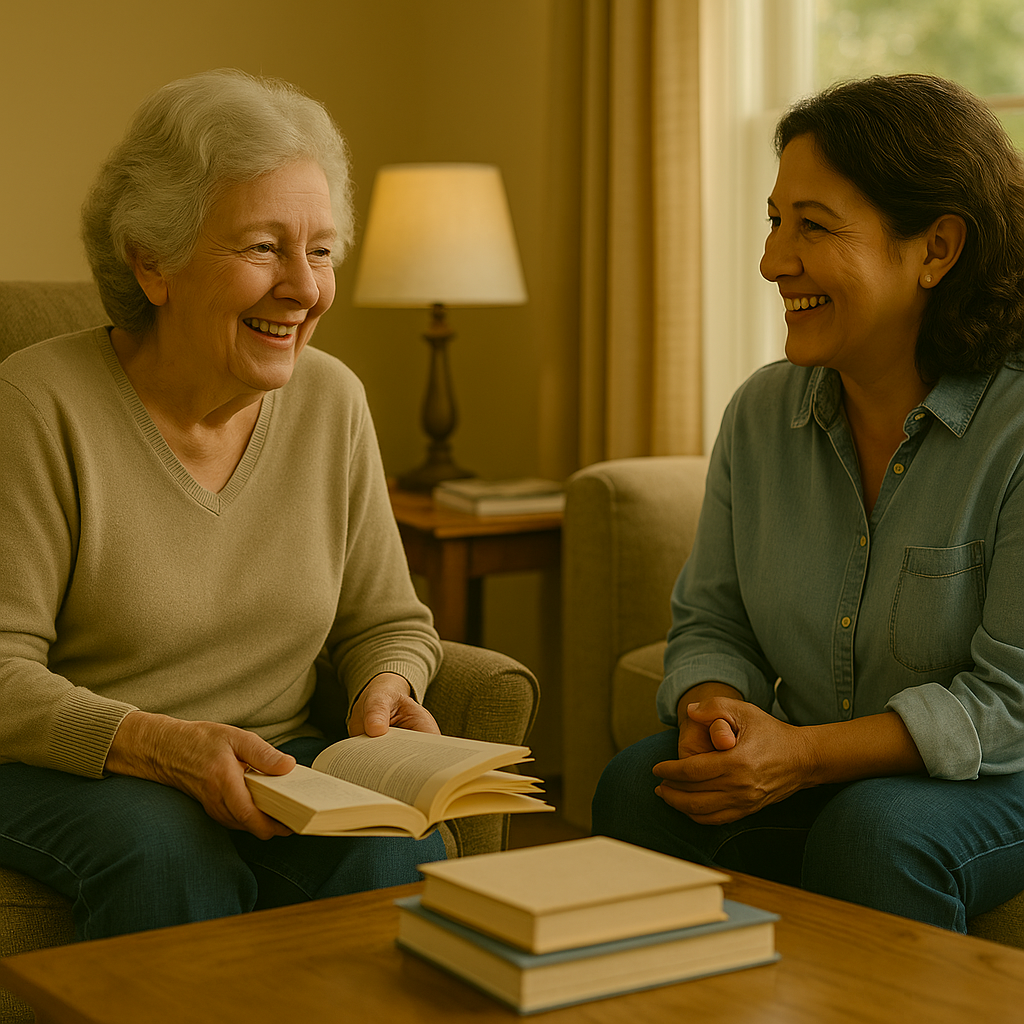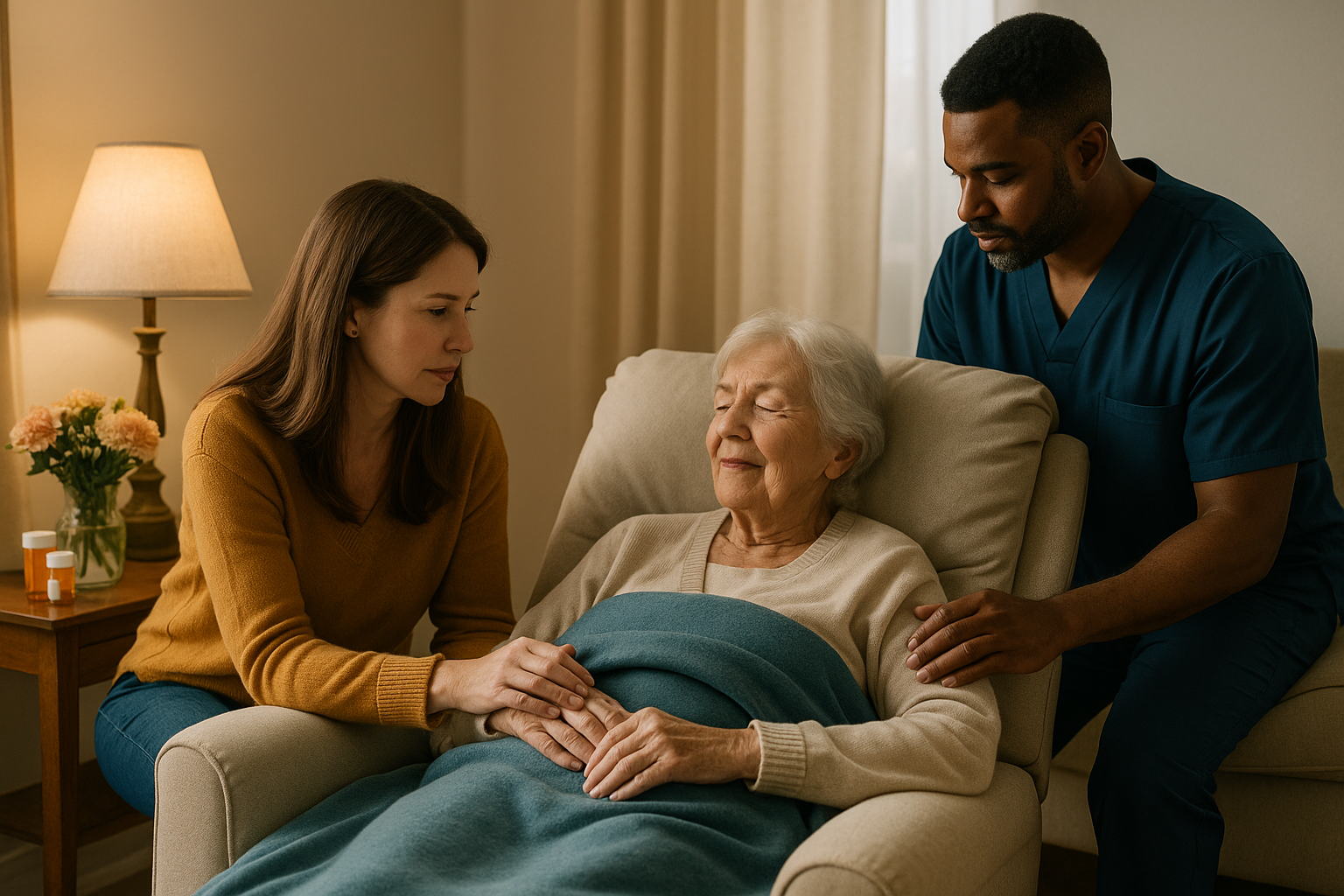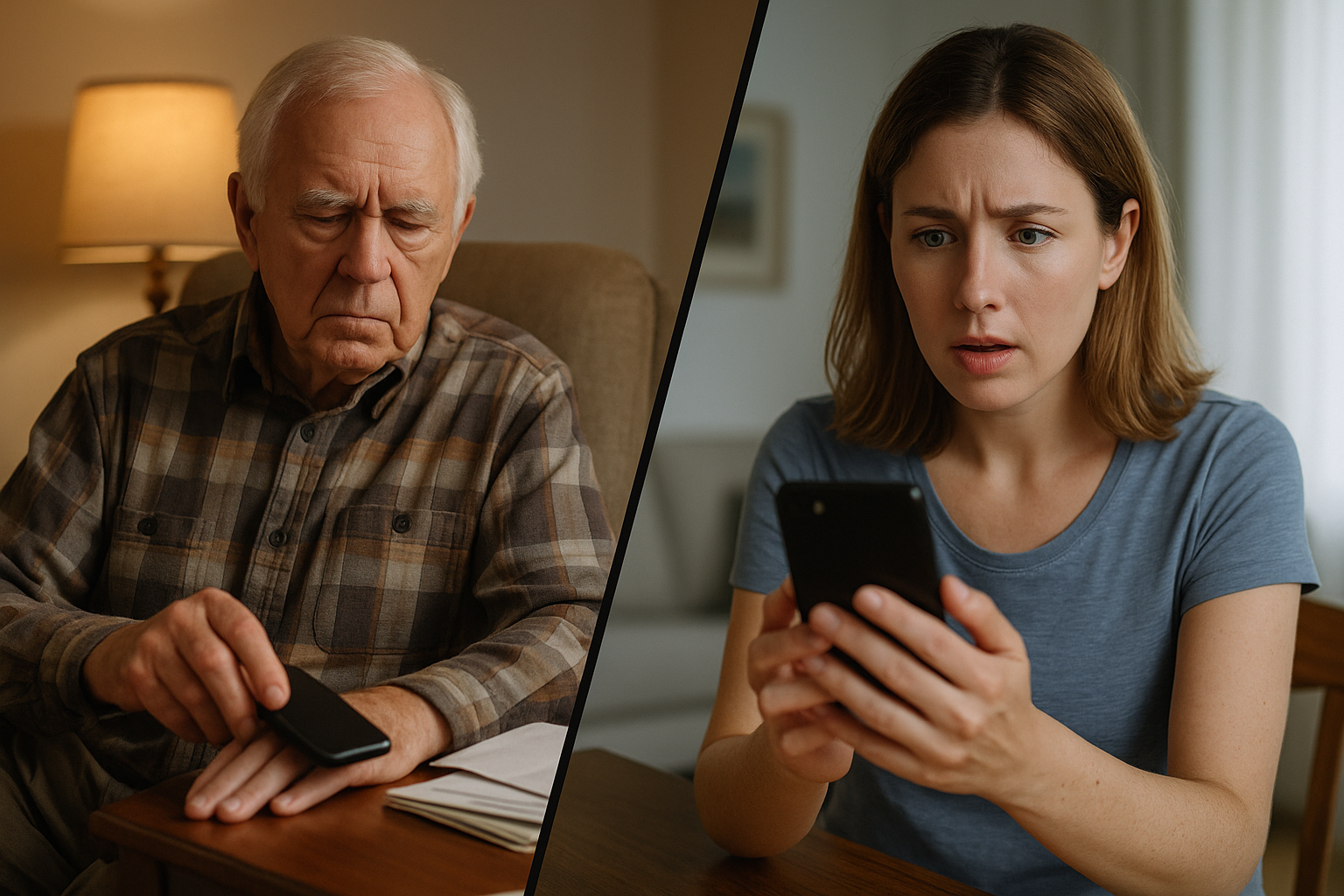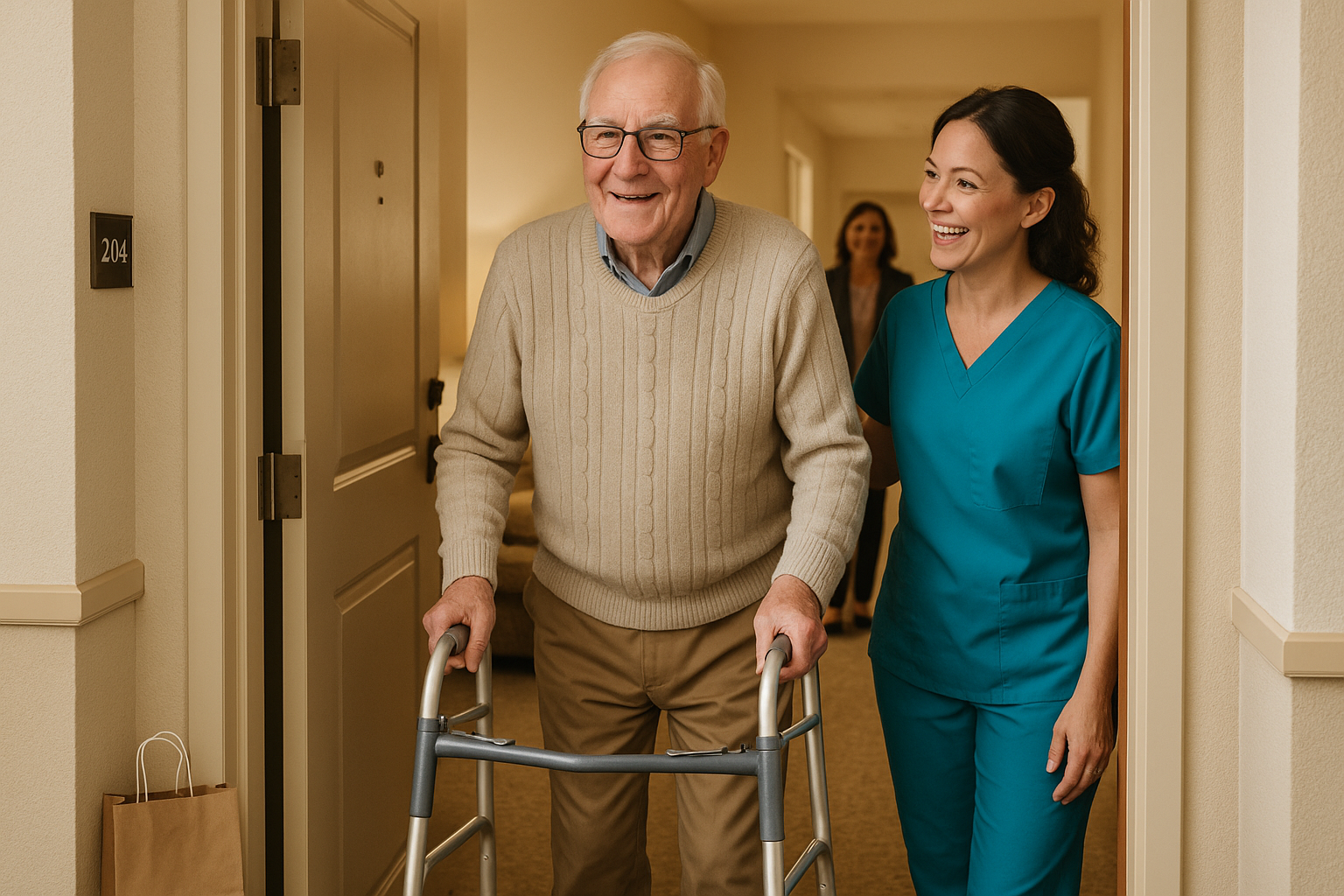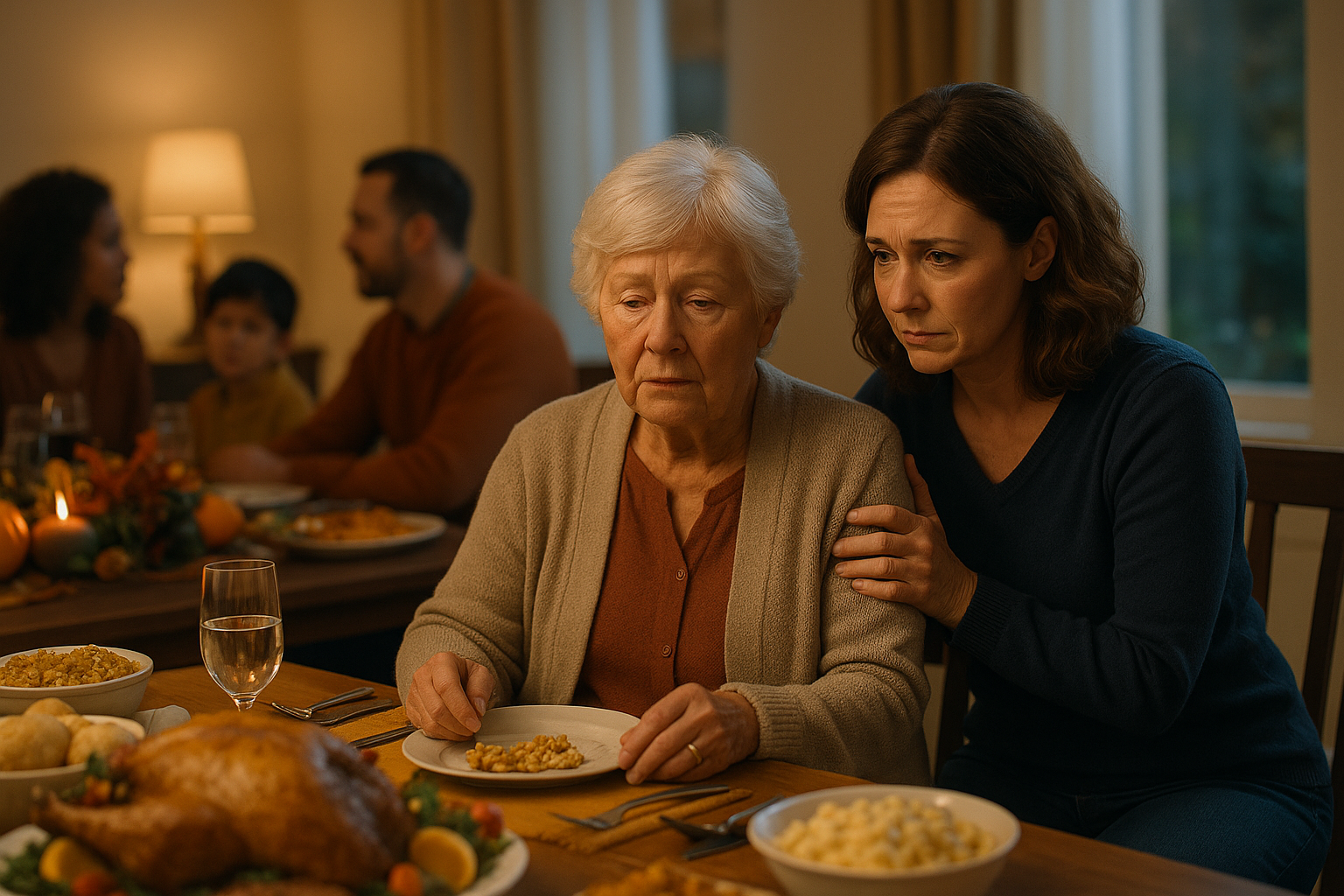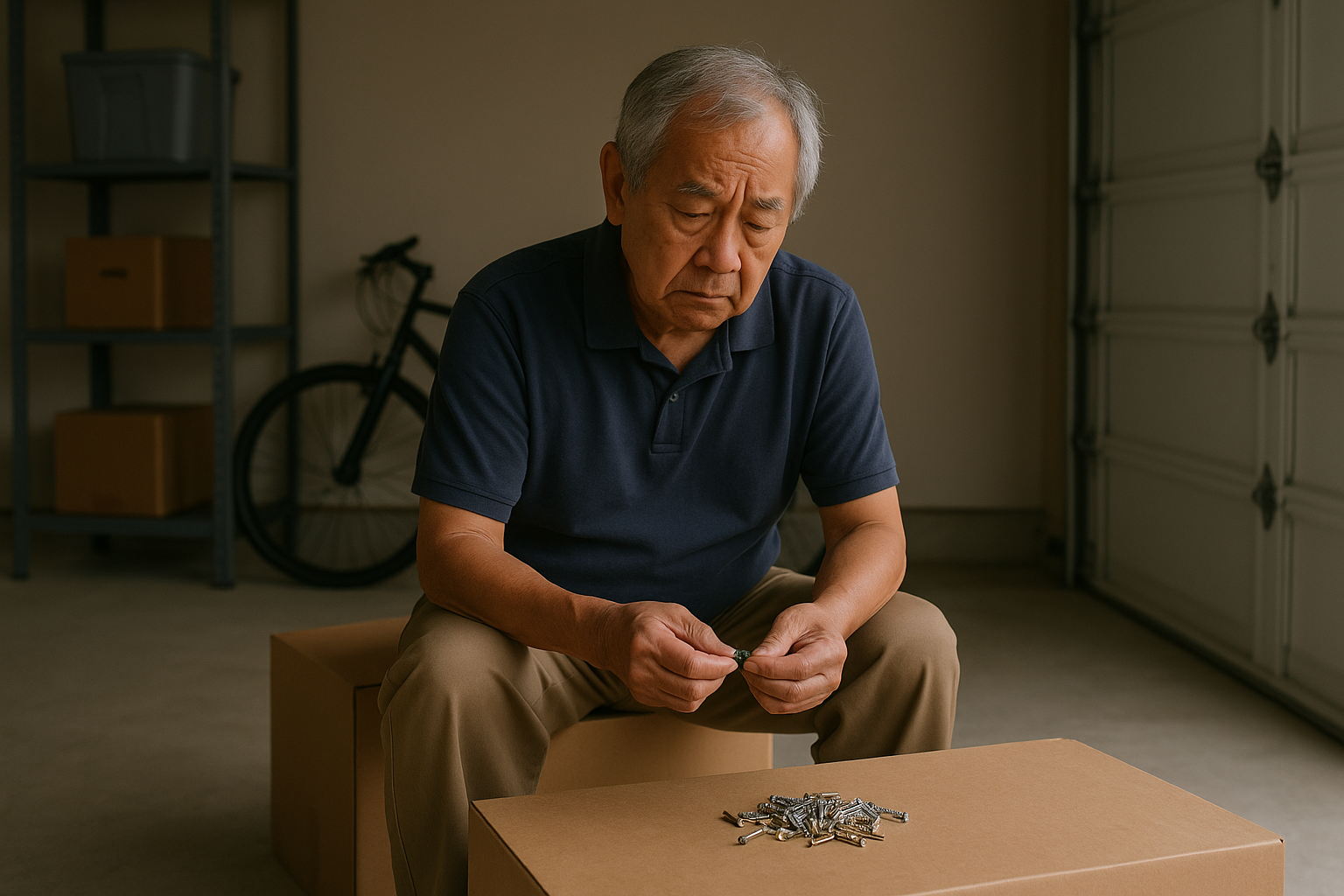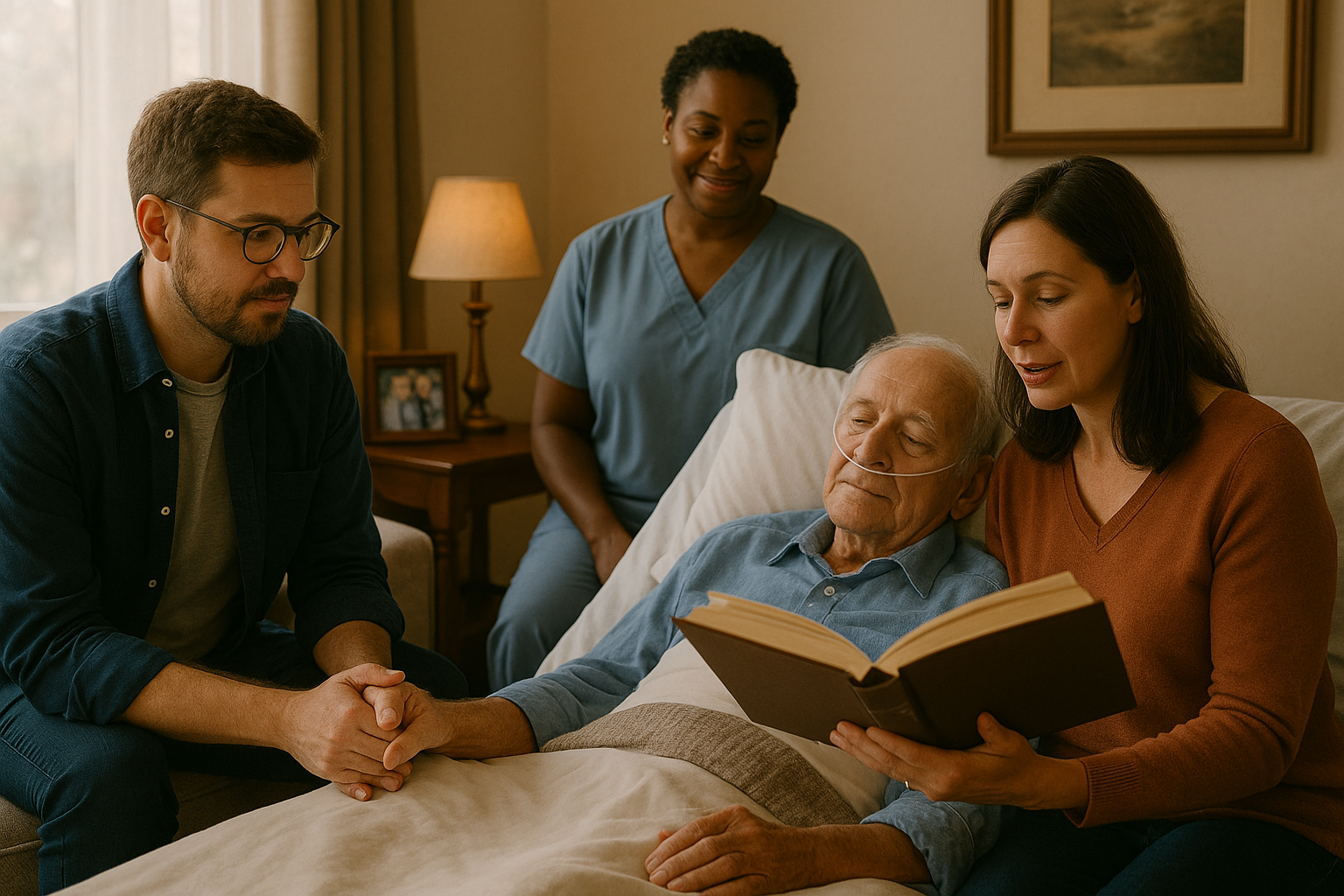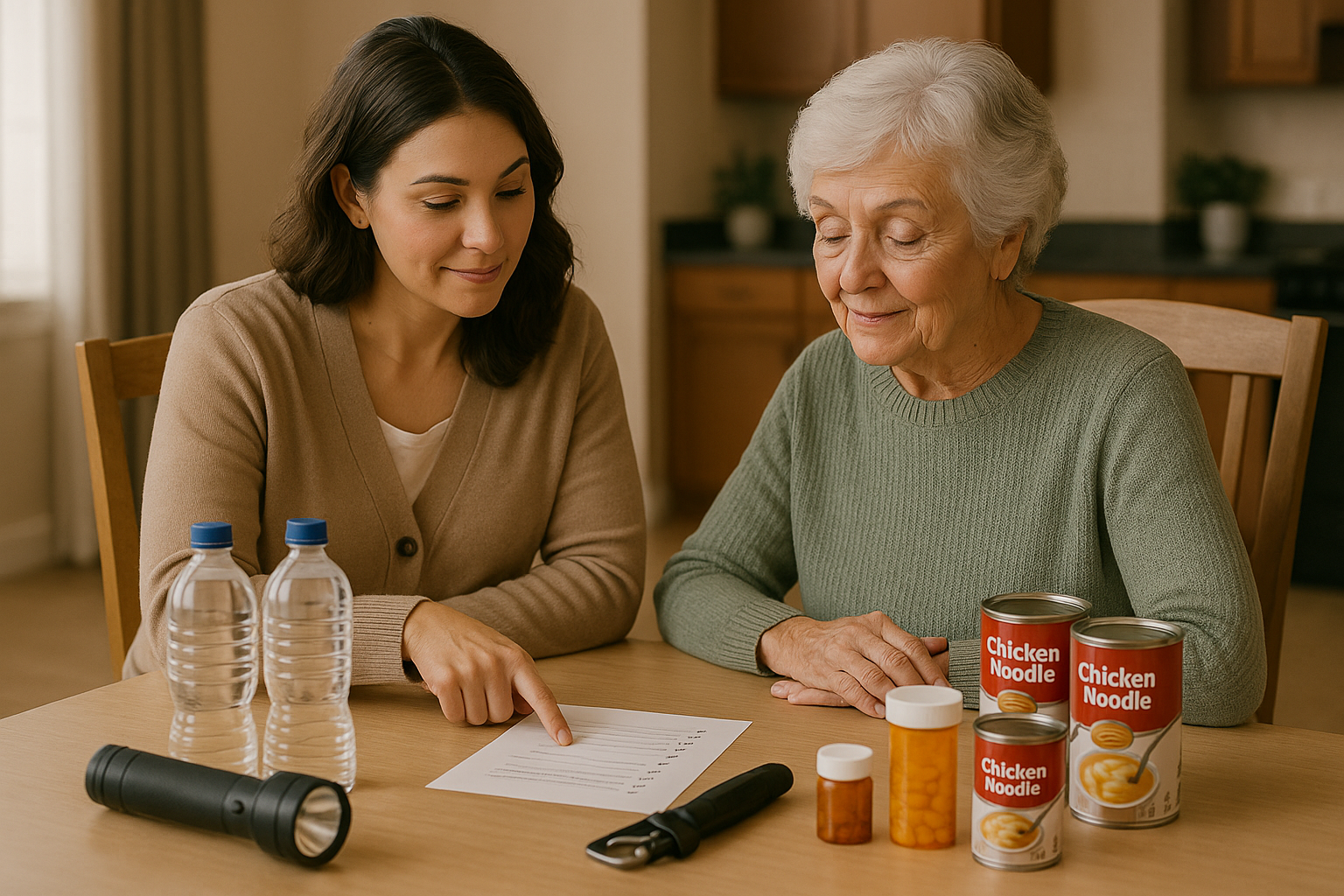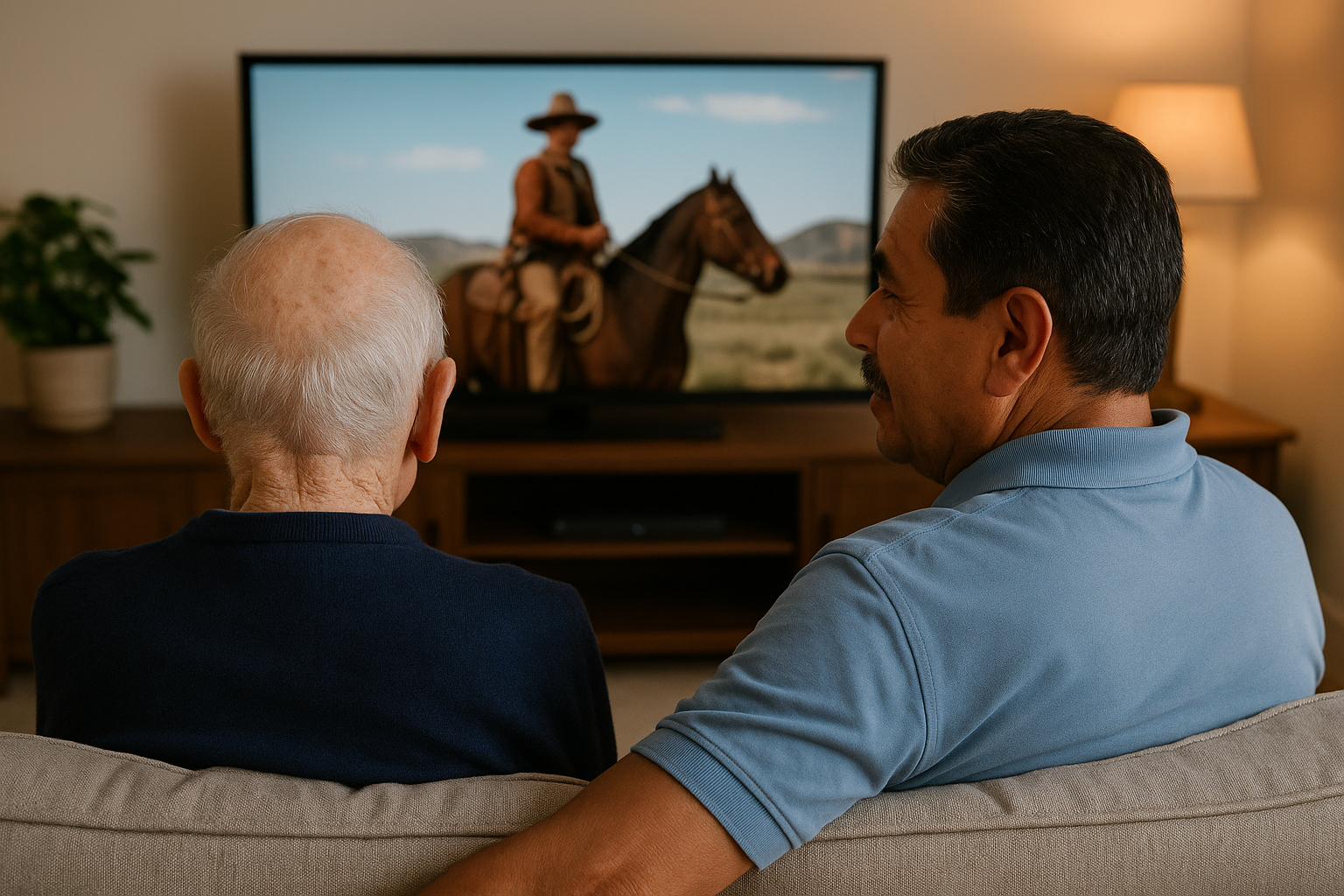Respite Care Explained
How 4 Hours a Week Changed Everything
You didn't plan to become a caregiver. It just… happened.
First, it was checking in on Mom after Dad passed. Then it was helping with grocery runs. Before you knew it, you were fielding daily phone calls, managing medications, and lying awake at 2 AM wondering if she was safe in that house alone.
Sound familiar?
Today I want to share the story of a Parker family who found their way back from caregiver burnout. Their journey might feel like your own.
Meet the Johnson Family
Sarah Johnson is a 52-year-old marketing director who lives in Parker with her husband and two teenage kids. She's the kind of person who handles everything—work deadlines, soccer carpools, family dinners—with the efficiency of someone who's learned to juggle a lot of moving parts.
Her mom, Patricia, is 78 and lives alone in Littleton. Patricia raised three kids, taught elementary school for 30 years, and prided herself on never needing help from anyone. She's sharp, independent, and stubborn in all the ways that made her a great teacher and mother.
Two years ago, when Patricia's husband passed away, Sarah started "checking in" twice a week. Just to make sure Mom was okay.
But checking in became daily calls. Then daily visits. Then managing bills, organizing medications, and constantly worrying whether Patricia was eating enough, staying safe, or taking her heart medication on time.
The Breaking Point Moment
It was a Tuesday in March when Sarah got the call at work.
Her mom had fallen in the bathroom—nothing serious, but she'd been on the floor for three hours before a neighbor heard her calling for help. Patricia was fine, just shaken. But Sarah wasn't.
"I realized I'd been holding my breath for months," Sarah told me. "Every time my phone rang, I expected the worst. And that day, I almost got it."
The Slow Build-Up: How They Got Here
The signs had been building for months, but they were easy to rationalize:
- Forgotten appointments: "Everyone forgets things sometimes."
- Bills in stacks: "She's grieving—of course she's disorganized."
- The same outfit three days in a row: "Laundry is hard when you're alone."
- An empty fridge: "She's just not hungry much lately."
Sarah started "helping" more. Grocery runs on Saturdays. Organizing pills every Sunday. Calling every morning and evening to check in. The guilt was constant—she was failing at everything, stretched too thin.
The Resistance
When Sarah first mentioned getting help after the fall, both women had objections.
Patricia: "I don't need a stranger in my house."
Sarah worried about cost, whether insurance might cover anything, and, honestly, shouldn't she be able to handle this herself?
"I felt like asking for help meant I was giving up on her," Sarah explained.
The Atlee Solution: Starting Small
After that bathroom fall, Sarah called us.
During our free consultation at Patricia's home, we talked through what daily life really looked like—not what everyone wanted it to look like, but what was actually happening. Patricia was honest about the things that had gotten harder. Sarah was honest about the toll it was taking on her family.
We matched Patricia with Maria, an experienced caregiver who had also been a teacher. The connection was immediate.
"Maria gets me," Patricia said after their first meeting. "We talked about books, not just my pills."
We started with one 4-hour visit every Wednesday—Sarah's longest workday.
Those first four hours included:
- Light housekeeping (dishes, bathroom, kitchen counter)
- Medication organization and gentle reminders
- Companionship—crossword puzzles, looking through photo albums, real conversation
- A safety walkthrough (loose rugs, lighting, noting where grab bars might help)
- Simple meal prep (making Wednesday's dinner, prepping Thursday's lunch)
The Unexpected Results: Month One
For Patricia: "Wednesday became my favorite day. Maria and I talk about everything—the books we're reading, her grandchildren, my teaching stories. She doesn't treat me like I'm fragile."
Patricia started engaging more with her daily routine. Knowing Maria was coming gave her something to look forward to, and she began tidying up before visits—not out of embarrassment, but out of pride.
For Sarah: "Wednesdays became my most productive workdays. For the first time in months, I wasn't checking my phone every twenty minutes or making excuse calls to leave early."
Sarah's anxiety dropped significantly. She still called her mom daily, but the conversations were different—more about connection than crisis management.
The Ripple Effects:
- Patricia started calling her neighbors more often
- Sarah's family dinners became relaxed again
- The teenagers started visiting grandma more, seeing her as less fragile and more like herself
Growing the Support: Month Two
By the second month, it became clear that four hours wasn't quite enough. Patricia was thriving with Maria's visits, but Sarah was still handling too much on her own.
We expanded to two 4-hour visits per week—Wednesday mornings and Saturday afternoons.
Saturday visits included:
- Grocery shopping together (Patricia stayed involved in choices)
- Running errands (bank, pharmacy, post office)
- Technology help (setting up video calls with the grandkids)
- Light meal prep for the week ahead
- Transportation to the senior center activities, Patricia had stopped attending
"I didn't realize how much I'd pulled back from everything until I started doing things again," Patricia said.
The Numbers: What It Actually Cost vs. What They Almost Lost
Atlee Care: $35/hour x 8 hours/week = $280/week
Alternative costs they avoided:
- Sarah's lost work productivity and stress: ~$250/week estimated
- Emergency room visits (prevented at least 2): $1,500 each
- The marriage counseling Sarah's husband had quietly suggested: $150/session
- Assisted living facility research they'd started: $4,500+/month
But the real savings were harder to measure:
- Family relationships that stayed intact
- Patricia's confidence and independence
- Sarah's mental health and job performance
- Two teenagers who still enjoyed visiting grandma
The Family's Advice to Others
Sarah: "We waited too long. I wish we'd started with just a few hours earlier—it would have prevented so much stress and actually saved money in the long run."
Patricia: "Maria isn't help, she's become part of our family. She doesn't do everything for me—she does things with me. There's a big difference."
When to Consider Respite Care
You might benefit from respite care if you're visiting daily out of worry, your work or family relationships are suffering, your parent has had a health scare, meals aren't happening regularly, medications are being missed, or social isolation is increasing.
The Atlee Difference
What made this work was our approach: flexible scheduling around family needs, caregiver consistency (Maria's been with Patricia 18+ months), no weekly minimums beyond our 4-hour visit requirement, and transparent communication through our platform.
Six Months Later
Today, Patricia is thriving in her Littleton home. She's reconnected with old friends, joined a book club at the senior center, and even started volunteering at the library.
Sarah's back to being the marketing director, wife, and mother she was before—except now she's also a daughter who doesn't carry constant worry.
"I used to dread my phone ringing," Sarah said. "Now when Mom calls, we actually talk about interesting things instead of just checking items off a safety list."
Maria still comes twice a week. The relationship has evolved—less task-focused, more friendship-focused—but the structure remains important for everyone involved.
Every Family's Story Is Different
The Johnson family's journey worked because we started small, built trust, and adjusted as needs changed. Your situation might look different; maybe you need more hours, different services, or a different approach entirely.
But here's what I know after years of doing this work: waiting usually makes things harder, not easier. The families who thrive are the ones who ask for help before they're in crisis mode.
If this story sounds familiar, let's talk. No pressure, no commitment—just a real conversation about what support might look like for your family. We've helped hundreds of families in the Denver area navigate this transition, and we'd be honored to help yours.
📞
720-818-9088
🌐
www.atleecare.com
Every family deserves to age with dignity—including the family members doing the caring.
